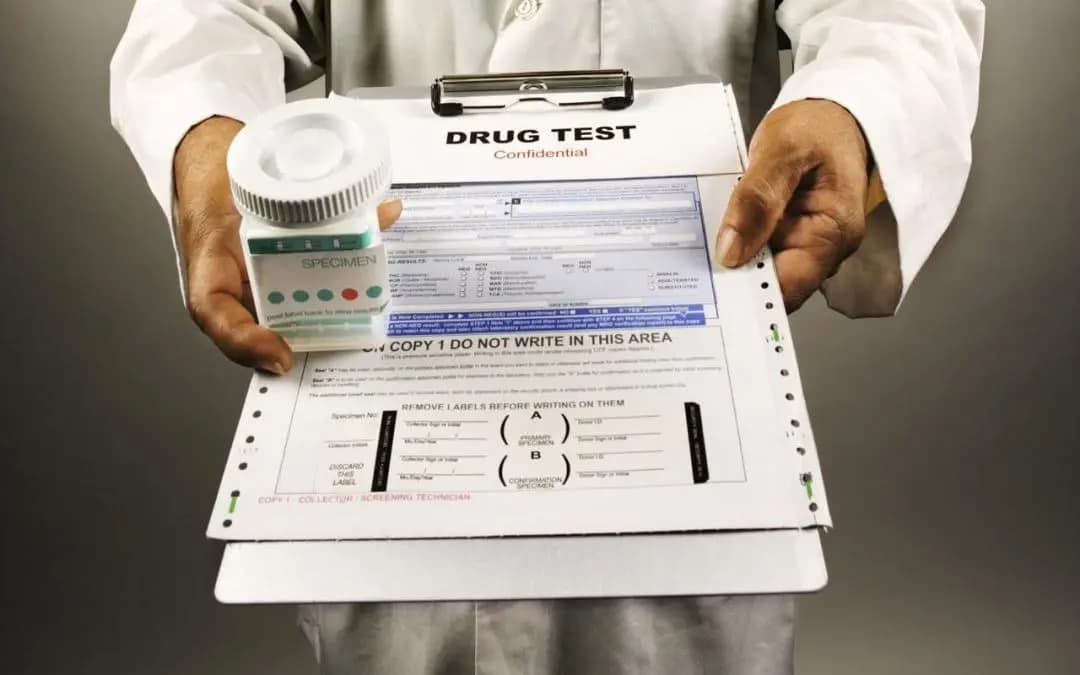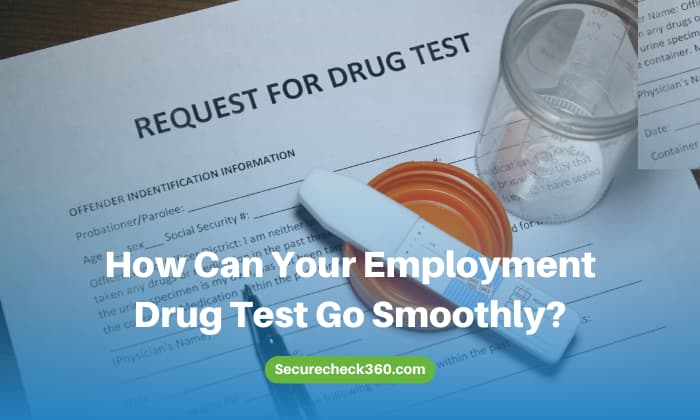Securing employment often involves various steps, and one crucial aspect that many job seekers encounter is the employment drug test. As employers prioritize maintaining a safe and drug-free workplace, these tests have become a common requirement in many industries. However, the mere mention of drug testing can often instill apprehension and stress in individuals. The good news is that with proper knowledge and preparation, your employment drug test can go smoothly, ensuring a positive outcome and bolstering your chances of landing that dream job.
Understanding Employment Drug Tests
Before delving into the strategies for a smooth employment drug test experience, it is essential to grasp the fundamental aspects of these tests. Employment drug tests are conducted by employers to ensure a safe and drug-free working environment. These tests typically involve the analysis of bodily samples, such as urine, blood, saliva, or hair, to detect the presence of illicit substances or certain medications.

It’s important to note that drug tests are conducted for various reasons, including pre-employment screening, random testing, post-accident or reasonable suspicion testing, and as part of regular workplace policies. By understanding the purpose and types of drug tests commonly used by employers, individuals can better prepare themselves for the process and be aware of the potential implications for their employment prospects.
Importance of a Smooth Drug Testing Process for Job Seekers and Employees
A smooth drug testing process holds significant importance for both job seekers and employees. For job seekers, successfully passing a drug test is often a prerequisite for securing employment. Many companies have a strict policy of conducting pre-employment drug tests to ensure that prospective employees are drug-free and capable of maintaining a safe and productive work environment. Failing a drug test can result in the withdrawal of a job offer, eliminating the opportunity to join a desired organization.
For current employees, a smooth drug testing process is equally important. Companies may conduct random or periodic drug tests as part of their ongoing efforts to maintain workplace safety and productivity. A positive test result can have severe consequences, including termination of employment or mandatory participation in rehabilitation programs.
Furthermore, a smooth drug testing process fosters trust and confidence among employers, employees, and clients. It demonstrates a commitment to a safe and drug-free work environment, which is essential for promoting productivity, preventing accidents, and ensuring the well-being of all individuals involved.
The Different Types of Drug Tests Commonly Used by Employers
Employers have several options when it comes to conducting drug tests, each with its own advantages and limitations. Understanding the different types of drug tests can help you prepare effectively and know what to expect. Here are the most common drug testing methods used by employers:
- Urine Drug Test: The urine drug test is the most prevalent and cost-effective method used by employers. It detects recent drug use by analyzing metabolites excreted in urine. This type of test can detect a wide range of substances, including marijuana, cocaine, opioids, amphetamines, and more. It is relatively non-invasive and provides quick results, making it a popular choice for pre-employment and random drug testing.
- Blood Drug Test: Blood drug tests are less common in the workplace due to their invasiveness and higher cost. They are often used in specific situations such as post-accident or reasonable suspicion testing. Blood tests can accurately detect the presence of drugs in the system and measure their concentration. They are particularly useful for detecting recent drug use but may not be effective for identifying past drug use.
- Saliva Drug Test: Saliva drug tests are gaining popularity due to their simplicity and non-invasiveness. These tests involve collecting a saliva sample using a swab, which is then analyzed for the presence of drugs. Saliva tests can detect recent drug use, typically within a few days, and are commonly used in pre-employment screening or random testing. They are advantageous because they are difficult to adulterate or substitute, providing a reliable and convenient option for employers.
- Hair Drug Test: Hair drug tests offer a longer detection window compared to other methods. The test involves collecting a hair sample from the scalp or other body parts and analyzing it for drug metabolites. Hair tests can detect drug use over a period of several months, making them useful for identifying chronic or long-term drug use. However, they are relatively expensive and may not be suitable for detecting recent drug use.
- Breath Alcohol Test: While not technically a drug test, breath alcohol tests are commonly used to detect alcohol impairment in the workplace. These tests measure the alcohol concentration in the breath and provide an immediate result. They are often used for post-accident or reasonable suspicion testing to ensure workplace safety.
Preparing for a Drug Test
Preparing for a drug test involves several important steps to increase your chances of success.
The following are steps you should consider while preparing for a drug test:
A. Research your company’s drug testing policy and procedures: Before undergoing a drug test, it is crucial to research and familiarize yourself with your company’s drug testing policy and procedures. Each organization may have specific guidelines regarding the frequency and type of drug tests they conduct, as well as the consequences of a positive result.
B. Understand the substances that are typically tested for: To adequately prepare for a drug test, it is essential to have an understanding of the substances that are typically tested for. While the specific substances may vary depending on the company’s policy and industry regulations, common drugs include marijuana, cocaine, amphetamines, opioids, and phencyclidine (PCP). Additionally, some tests may screen for prescription medications or other substances that are commonly abused or present safety concerns in the workplace.
C. Tips for preparing your body for the drug test: Preparing your body for a drug test can significantly impact the accuracy and outcome of the results. One essential aspect is hydration. Drinking an adequate amount of water in the days leading up to the test can help dilute the concentration of drugs in your urine and increase the chances of passing. However, it’s important not to over hydrate, as excessively diluted urine may be flagged as suspicious.
D. Learn about any legal rights or protections related to drug testing: Familiarizing yourself with your legal rights and protections related to drug testing is essential. Laws and regulations regarding drug testing vary across jurisdictions and may offer certain rights to employees. For example, some regions require employers to provide a clear and written drug testing policy, while others may regulate the frequency or type of drug tests that can be conducted. Understanding your rights can help you navigate the process confidently and ensure that the testing is conducted fairly and within the boundaries of the law.
Tips for a Smooth Drug Testing Experience
To ensure a smooth drug testing experience, consider the following tips.
- Familiarize yourself with the testing location and arrive on time.
- Bring necessary identification and paperwork (e.g., valid ID, authorization forms).
- Follow specific instructions provided by the testing facility, especially for sample collection.
- Manage test anxiety and stay calm during the process.
- Maintain a clear mindset to perform better.
By following these tips, you can ensure a smooth drug testing experience and increase your chances of a successful outcome.
Conclusion
Navigating an employment drug test successfully is crucial for job seekers and employees alike. By implementing the strategies discussed in this blog post, you can significantly increase the likelihood of a smooth drug testing experience. Researching your company’s drug testing policies, understanding the substances typically tested for, and preparing your body adequately are essential steps towards achieving a positive outcome.
Additionally, being aware of your legal rights and protections related to drug testing can help ensure a fair and lawful process. Remember to follow the specific instructions provided by the testing facility and manage any test anxiety to maintain a calm and focused mindset. By incorporating these tips into your drug testing preparation, you can approach the process confidently, demonstrate your commitment to a drug-free workplace, and enhance your employment prospects.
Why Securecheck360
We have established strategic partnerships with leading laboratories across the United States as well as extensive networks of hospitals and clinics. Our services cater to diverse needs, whether you aim to foster a drug-free work environment or identify individuals with substance abuse issues prior to hiring. Securecheck360 provides a comprehensive range of screening options for drugs and alcohol, ensuring that you have the flexibility to choose the most suitable approach for your specific requirements.
To know more about our services, book your free demo today!







